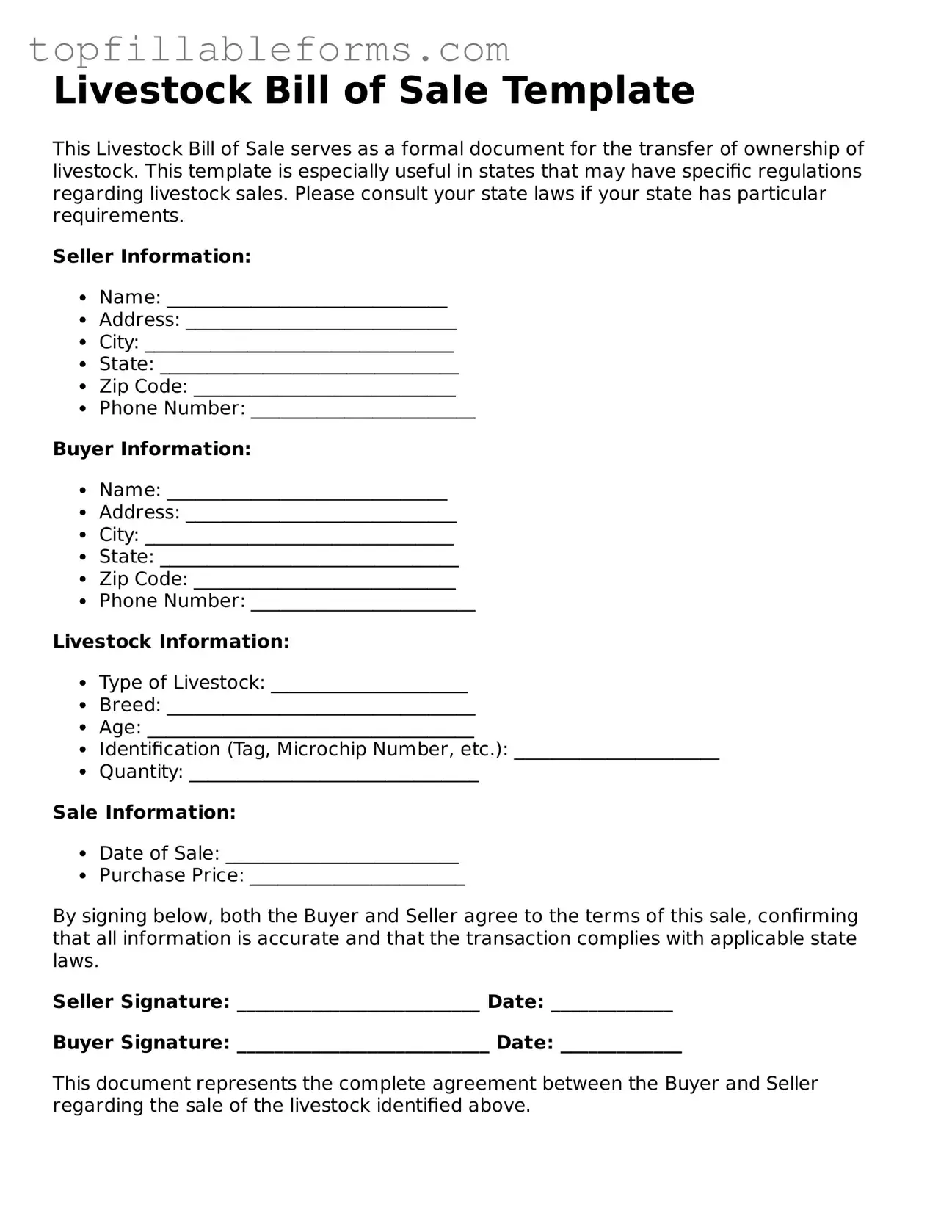Free Livestock Bill of Sale Form
A Livestock Bill of Sale form is a legal document that records the transfer of ownership of livestock from one party to another. This form serves as proof of sale and includes essential details such as the buyer's and seller's information, a description of the livestock, and the sale price. Using this form helps protect the interests of both parties involved in the transaction.
Open Livestock Bill of Sale Editor Here

Free Livestock Bill of Sale Form
Open Livestock Bill of Sale Editor Here
Finish the form now and be done
Finish your Livestock Bill of Sale online by editing, saving, and downloading fast.
Open Livestock Bill of Sale Editor Here
or
▼ PDF File
